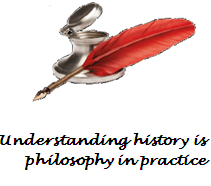
by Neville Buch | Sep 29, 2024 | American-Australian Relational History
Dear Simon,
Thank you for inviting me to your King’s Birthday BBQ! As Donald Horne’s key message of The Lucky Country, “Australia is a lucky country run mainly by second-rate people who share its luck.” We, as an Australian Monarchist and an Australian Republican, would not put ourselves in that boat of the 1965 public discourse. Like many Australians, we assume that we have escaped of the past. Oh, that it was so.
There is progress in that Australian modernity, of which Horne played a significant role in the narrative development, has both Australian good versions. Monarchism and Republicanism has escaped, at least, the worst of other worldly forms: the worst of British smugness and American arrogance in political form. The educated Australians can civically discuss the spiral history of Anglo-American-Australasian ideals and nonsense, without the horrible Australian derivativeness, colonial-mindedness, and cultural cringe (Cropp 2023: 224). Unfortunately, the vast majority of Australians are extremely uneducated when it comes to history, sociology, philosophy, and education. Australian universities had killed intellectual history courses and squeezed out the researchers from the system (a general statement, and thus a general truth).
It is for this reason Horne, in the late 1970s, argued for the future in the elite model. A re-constitution for Australia, democratically elected, small directive, governance (232). I myself prefer, from the same era, the New Left’s horizontal, participatory structure; (232) that is the historical background to my Level Playing Field Thesis. As my colleague, Dr Neil Peach, argues: Participation is the key for politics to work in favour of the goals of humanity. We must participate in the Humanist Project with the most inclusiveness to our understanding of humanity and persons.
Thus there is a general and a particular narrative here: global political systems and Australian aspirations for a better life. Working the two together, requires education, the education of intellectual histories and cognition sociology lost to, and from, the universities. It is the story of Donald Horne’s republican battle in the light of “The Dismissal”; to use a double meaning that includes the anti-epistemological political response, and as told in Ryan Cropp’s chapter, “Shock Therapy” (212-233). My argument is that the spiral of Australian history has returned, in new form, back to that moment. At the end of the chapter, Cropp stated, “The System that had produced the prosperity of the post-war years now appeared to have broken down.” (232) We are now in the parallel moment, as the end of the Neo-Liberal Economy. Whether Harris’ ‘Opportunity Economy‘ will emerge and what come from it, I dare not say.
However, what needs to happen, irrespective of the calculating mindset of the economically obsessed, is a re-constitution of Australian politics. Would it not be creative, innovative, and intellectually harmonious if Australia could take particular features of the two global models, to create a new Australian political landscape, one that was inclusive of both educational elitism — meaning that unless you are educated on the educated themed topics, your comments is “talking out of your ass”, and democratic level playing field model — meaning a severe backlash against political corruption at all levels of governance. Yes, like the Cromwellian Commonwealth, it IS (and was) a negative spiral, as a republican model, but the spiral history appears to me necessarily overreactive: the challenge and response thesis on steroids. The War in Gaza and Lebanon, a case in hand; which by the way, is no justification for the war as a sound argument — we also make choices not to be captive to historicism while declaring its truth.
The idiot academics will dismiss my argument as Dr Frankenstein creating the multi-part monster. But through many better epistemic arguments, they are the losers as grossly poor thinkers; Horne’s now luckless second-rate people. Knowledge is finally comprehensive.
I look forward to your monarchial BBQ, and your good counsel.
Kind regards,
the “Cromwellian Roundhead”


Neville Buch
Historian,
Professional Historians Australia (Queensland).
Australian and New Zealand History of Education Society (ANZHES).
President, Sea of Faith in Australia Inc. (SoFiA)
Convenor, Sociology of Education Thematic Group, The Australian Sociological Association (TASA).
President, Southern Brisbane Suburban Forum (SBSF).
Director, Brisbane Southside History Network (BSHN).
MPHA (Qld), Ph.D. (History) UQ., Grad. Dip. Arts (Philosophy) Melb., Grad. Dip. (Education) UQ.

Call: 0416 046 429
ABN: 86703686642
Bibliography
Bongiorno, Frank (2014) Book Review: Project Republic: Plans and Arguments for a New Australia, Australian Historical Studies, 45:1, 129-130, DOI: 10.1080/1031461X.2014.877782
Cropp, Ryan (2023). Donald Horne: A Life in the Lucky Country, La Trobe University Press.
Curthoys, Ann (2016) Book Review: Republicanism and Responsible Government: The Shaping of Democracy in Australia and Canada, Australian Historical Studies, 47:2, 332-334, DOI: 10.1080/1031461X.2016.1162684
Davis, Glyn (2011). The Boyer Lectures 2010: The Republic of Learning: Higher Education Transforms Australia, Bolinda Publishing
DiIulio, J. (2007). The Nation’s Spiritual Capital. In Godly Republic: A Centrist Blueprint for America’s Faith-Based Future: A Former White House Official Explodes Ten Polarizing Myths about Religion and Government in America Today (pp. 153-190). University of California Press. Retrieved May 9, 2020, from www.jstor.org/stable/10.1525/j.ctt1pnvq2.9
DiIulio, J. (2007). The President’s Bipartisan Prayer. In Godly Republic: A Centrist Blueprint for America’s Faith-Based Future: A Former White House Official Explodes Ten Polarizing Myths about Religion and Government in America Today (pp. 116-152). University of California Press. Retrieved May 9, 2020, from www.jstor.org/stable/10.1525/j.ctt1pnvq2.8
DiIulio, J. (2007). The Republic’s Faith-Based Future. In Godly Republic: A Centrist Blueprint for America’s Faith-Based Future: A Former White House Official Explodes Ten Polarizing Myths about Religion and Government in America Today (pp. 191-222). University of California Press. Retrieved May 9, 2020, from www.jstor.org/stable/10.1525/j.ctt1pnvq2.10
Hudson, Wayne & Brown, A.J. (2004). Restructuring Australia : regionalism, republicanism and reform of the nation-state. Federation Press, Annandale, N.S.W
Kim, David W. and Duncan Wright (2024), Socio-Anthropological Approaches to Religion: Environmental Hope (Rowman & Littlefield)
James Walter (2018) Book Review: This Time: Australia’s Republican Past and Future, Australian Historical Studies, 49:4, 564-565, DOI: 10.1080/1031461X.2018.1520186
Mansfield, B. (1953) The background to radical republicanism in New South Wales in the eighteen‐eighties, Historical Studies: Australia and New Zealand, 5:20, 338-348, DOI: 10.1080/10314615308594959
Marilyn Lake (2007) ‘The brightness of eyes and quiet assurance which seem to say American’: Alfred Deakin’s Identification with Republican Manhood, Australian Historical Studies, 38:129, 32-51, DOI: 10.1080/10314610708601230
Matlack, S. (2014). Confronting the Technological Society. The New Atlantis, 43, 45–64. http://www.jstor.org/stable/43551405
Milbank, Dana (2022). The Destructionists : The Twenty-Five Year Crack-Up of the Republican Party, Random House USA Inc.
Mills, C. Wright (1959). The Sociological Imagination, Oxford University Press
Nussbaum, Martha Craven (2018). The Monarchy of Fear : a philosopher looks at our political crisis (First Edition). Oxford University Press, Oxford
Pickering, Paul A. (2003) ‘Ripe for a republic’: British radical responses to the eureka stockade, Australian Historical Studies, 34:121, 69-90, DOI: 10.1080/10314610308596237
Plato (BCE; translation 2012). Translated by Christopher Rowe. Republic, Penguin Books.
Sunstein, Cass R. (2018). #Republic : Divided Democracy in the Age of Social Media, Princeton University Press.
Potts, E. Daniel & Annette (1968) American republicanism and the disturbances on the Victorian goldfields, Historical Studies, 13:50, 145-164, DOI: 10.1080/10314616808595366
Roberts, P. (2015). Chapter Four: Paulo Freire and the Idea of Openness. Counterpoints, 500, 79–91. http://www.jstor.org/stable/45178205
Stone, L. (2018). Nel Noddings: Courageous Philosopher and Reformer. The High School Journal, 101(2), 100–107. https://www.jstor.org/stable/90024233
Wehner, Peter(2019). The Death of Politics: How to Heal Our Frayed Republic After Trump, HarperOne
Zaretsky, R. (2010). 1945: A Moralist on the Barricades. In Albert Camus: Elements of a Life (pp. 47-78). Ithaca; London: Cornell University Press. Retrieved May 22, 2020, from www.jstor.org/stable/10.7591/j.ctt7zhqk.6
Ziolkowski, E. (1996). Slouching toward Scholardom: The Endangered American College. College English, 58(5), 568-588. doi:10.2307/378757
Zora Simic (2010) The Margins of Suburbia, History Australia, 7:2, 47.1-47.2, DOI: 10.2104/ha100047
Zuckerman, M. (1993). Faith, Hope, Not Much Charity: The Optimistic Epistemology of Lewis Mumford. In Almost Chosen People: Oblique Biographies in the American Grain (pp. 239-259). University of California Press. Retrieved May 8, 2020, from www.jstor.org/stable/10.1525/j.ctt1pnnmx.11


by Neville Buch | Jun 23, 2024
- Born 15 July. Two days after mother (Dorothy Ellen Buch 1924-2019) and father (Douglas Wilfred Buch 1926-2017) moved into the new family home at 77 Orange Grove Road, Coopers Plains QLD 4108.
1967-1968. Member. Methodist Order of Knights. Coopers Plains.
- School under 7s rugby player. Coopers Plains.
1968-1971. Member. Cubs Scouts. Coopers Plains.
1977-1978. Member. Boys Brigade (Baptist). Salisbury.
- Salisbury High School Theatre Production, ‘Superman’ (role of a London Bobby).
1978-1981. 3rd tier local rock band (e.g. ‘Isaiah’). rhythm guitarist.
1979-1980. David Jones, Queens Street. Shop Assistant (Hardware, Kitchenware).
- Expo ’80. Axillary Planner (mapping).
- Alcorn College Biloela-Blackwater-Emerald-Roma Trip. Student Missioner.
- Teen Challenge. Koinonia Drug Rehabilitation Residential Centre. Male Councillor.
- Zondervan Bible Encyclopedia Door-to-Door and Christmas Cards Salesman (Lost Year to a Pentecostal Scam).
1984. Safeway, Mount Gravatt. Night Packer.
1984-1985. Ariel Student Accommodation-Discipleship Group, Glad Tidings Tabernacle. Informal Student Manager.
1984-1985. Member. Student Life (UQ).
- Christian Forum (UQ). Facilitator.
1986-1987. Member. Religious History Association (RHA).
1986-1987. Brisbane City Council. Brisbane City Hall Library. Librarian Assistant.
- Member. Oral History Association of Australia (Queensland).
- Awarded B.A. Honours (2nd). Thesis Scholar.
1987-1988. Member. Waiters Union (Tear Australia).
1988-2016. Ruth Elizabeth Buch. Faithful Husband.
- Australian-Bangladesh Flood Charity Dinner (Tear Australia). Organiser.
1988-1989. Journey magazine, Uniting Church Queensland Synod. Journalist.
1989-1996. Member. Australian Democrats.
- Child Protection Agency (Qld). Nightwatchman. Lost Year. Part-Time M.A. Studies.
1991-1992. Ph.D. Research Tour of the United States: West Coast, Mid-West, East Coast, The South. Partnership with Ruth.
- Friends-‘Family’. Baynes Street Household.
- Elder Daughter Born. Genevievre Rachel Ellen Buch.
1994-1995. Department of History, UQ. Tutor.
1994-1996. Member. Evangelical History Association Inc. (Australia).
1994-1997. Member. Australian Historical Association.
- Awarded Ph.D. Thesis Scholar.
1995-1996. Member. Professional Historians Association (alternative to the QHI).
1995-continuing. Member. Sea of Faith in Australia (SoFiA Inc.).
1995-1998. Brisbane Unitarian-Universalist Fellowship. Founding Convenor.
- Awarded Dip. Ed. Taught Brisbane Girls Grammar School.
- Australian federal election, Australian Democrats. Pamphleteer.
- Queensland Education Department. Contract Teaching. Toogoolawah State High School.
1997-1998. Office of Vice-Chancellor, Griffith University. Research Assistant to the Vice-Chancellor.
1998-2008. Office of Vice-Chancellor, The University of Melbourne. Research Officer.
1999-2007. Sea of Faith in Australia (SoFiA Inc.). Melbourne Branch Convenor.
- Younger Daughter Born. Marguerite Rose Buch.
2005-2008. The Melbourne Model, The University of Melbourne. Member. Melbourne Model Communication Team.
- Member. Parents and Citizens Committee. Bundoora Secondary College.
2008-2009. Queensland University of Technology, Law Faculty, Senior Administration Officer (Learning and Teaching).
- Queensland Education Department. Contract Teaching. Runcorn State College, Stretton State College, Whites Hill State College.
- Member. Toastmasters Club (West End).
2009-continuing. Member. Australian Historical Association.
2009-continuing. Member. Professional Historians Queensland Inc.
2009-continuing. History Consultant. Sole Trade Business. ABN: 86703686642.
2010-2015. Member. Parents and Citizens Committee. Junction Park State School.
2010-2016. Federal Government Paid Carer. Ruth Elizabeth Buch (died, 17 December 2016).
2010-2017. Professional Historians Association (Q1d). Member of the Management Committee and PHA (Qld) e-bulletin editor.
2012-2019. Member. Oral History Association of Australia (Queensland).
2013-continuing. Member. Brisbane History Group Inc.
2015-continuing. Brisbane Southside History Network. BSHN Director.
2016-continuing. Member. Australian and New Zealand History of Education Society.
2016-continuing. Brisbane Unitarian-Universalist Fellowship (under Helen Jeays’ Leadership; led Ruth’s funeral). Consultant and Occasional Speaker.
2017-continuing. Member. Brisbane Catholic Historical Society.
2018-continuing. Member. Australia and Aotearoa NZ Public History Network (AANZHPN).
2019-continuing. Member. Australian Association for the Study of Religion.
2019-continuing. Member. Religious History Association (RHA).
2019-continuing. Member. International Society of Intellectual History (ISIH).
2021-continuing. Member. International Standing Conference for the History of Education. (ISCHE).
2021-continuing. Member. Evangelical History Association Inc. (Australia).
2021-continuing. Member. Australian Policy and History Network.
2021-continuing. Member. Humanist Australia.
2022-continuing. Southern Brisbane Suburban Forum (Southern Forum). President.
2022-continuing. Member. Australian and New Zealand Studies Association of North America. (ANZSANA).
2023-2024. Sea of Faith in Australia (SoFiA Inc.). Vice-President.
2023-continuing. Member. The Australian Sociological Association. Sociology of Education.
2023-continuing. Member. Association of University Lecturers in Religion and Education (AULRE).
2023-continuing. Member. The Royal Geographical Society of Queensland Ltd.
2023-continuing. Humanist Brisbane (local group of Humanist Australia). Organiser.
2024-continuing. The Australian Sociological Association. Sociology of Education. a Thematic Group Convenor.
2024-continuing. Humanist Australia. a Board Director.
2024-continuing. Journal Editor, Head of Editorial Committee. Brisbane Catholic Historical Society.
2024-continuing. Sea of Faith in Australia (SoFiA Inc.). President.
2024-continuing. Member. Fellowship of Australian Writers Queensland (FAWQ).


by That Website Is Me | Oct 22, 2018
…a commercially-viable guidebook for community education, based in Lebensphilosophie and Wissenschaft. He has been a Q ANZAC Fellow at the State Library of Queensland (2015-2016), and a speechwriter and…

by Neville Buch | Jul 21, 2019 | What Time Is It?
Anniversaries and commemorations come and go daily. Most of us, even the best historians, miss most occasions. If we think of history as events then we are faced with a continually showering in the grains of sand. Nevertheless, we do pick out certain patterns in the remembrance of historical dates. The blog here reminds us of some dates where the local, state, national, and global perspectives entwine.
On 21, Wednesday July 1869, John McDonald, politician, born (died 1934)
On 21, Monday July 1919, Wingfoot Air Express crash: The dirigible Wingfoot Air Express catches fire over downtown Chicago. Two passengers, one aircrewman and ten people on the ground are killed. However, two people parachute to the ground safely.
On 21, Monday July 1919, Pentland Hick, British entrepreneur, author, publisher, and veteran of World War II
On 21, Monday July 1919, Lady Rose McLaren, British aristocrat, born (d. 2005)
On 21, Friday July 1944, WWII: Battle of Guam: American troops land on Guam (the battle ends August 10).
On 21, Friday July 1944, The Soviet-sponsored Polish Committee of National Liberation is created in opposition to the Polish government-in-exile.
On 21, Friday July 1944, John Atta Mills, 13th President of Ghana, born (d. 2012)
On 21, Friday July 1944, Paul Wellstone, U.S. Senator from Minnesota, born (d. 2002)
On 21, Friday July 1944, Ludwig Beck, German general and Chief of the German General Staff, died (b. 1880)
On 21, Friday July 1944, Werner von Haeften, German resistance member (executed), died (b. 1908)
On 21, Friday July 1944, Albrecht Mertz von Quirnheim, German resistance leader, died (b. 1905)
On 21, Friday July 1944, Hans-Ulrich von Oertzen, German resistance member (suicide), died (b. 1915)
On 21, Friday July 1944, Friedrich Olbricht, German resistance leader, died (b. 1888)
On 21, Friday July 1944, Claus von Stauffenberg, German resistance leader, died (b. 1907)
On 21, Friday July 1944, Henning von Tresckow, German general and resistance leader (suicide), died (b. 1901)
On 21, Tuesday July 1959, Paul Vautin, rugby league footballer, coach and media personality, born
On 21, Monday July 1969, Godfrey, American comedian and actor, born
On 21, Monday July 1969, Avraam Russo, Russian singer, born
On 21, Monday July 1969, Isabell Werth, German equestrian, born
On 21, Saturday July 1979, The Sandinista National Liberation Front concludes a successful revolutionary campaign against the Somoza dictatorship and assumes power in Nicaragua.
On 21, Saturday July 1979, Maria de Lourdes Pintasilgo becomes prime minister of Portugal.
On 21, Saturday July 1979, Maritza Sayalero of Venezuela wins the Miss Universe pageant; the stage collapses after contestants and news photographers rush to her throne.
On 21, Saturday July 1979, The Disco music genre dominates and peaks on the Billboard Hot 100 chart, with the first six spots (beginning with Donna Summer’s Bad Girls), and seven of the chart’s top ten songs ending that week.
On 21, Saturday July 1979, David Carr, American football player, born
On 21, Saturday July 1979, Patriarch Elias IV of Antioch, died (b. 1914)
On 21, Saturday July 1979, Juan Guzmán Cruchaga, Chilean poet and diplomat, died (b. 1895)
On 21, Friday July 1989, A total blockade of Armenia and NKAO by Azerbaijan begins.
On 21, Friday July 1989, Narcissa Wright, speedrunner, born
On 21, Friday July 1989, Jasmine Cephas Jones, American actress, born
On 21, Friday July 1989, Rory Culkin, American actor, born
On 21, Friday July 1989, Chris Gunter, Welsh footballer, born
On 21, Friday July 1989, Jamie Waylett, British actor, born
On 21, Friday July 1989, Juno Temple, British actress, born
On 21, Thursday July 1994, Mother and Son finale airs. (1984–1994)
On 21, Thursday July 1994, Marijac, French cartoonist, died (b. 1908)
On 21, Thursday July 1994, Pere Calders, Spanish writer and cartoonist, died (b. 1912)
On 21, Monday July 2014, The United Nations Security Council adopts Resolution 2166 in response to the shootdown of Malaysia Airlines Flight 17.
Other On This Day days in history

by Neville Buch | Sep 8, 2022 | Article, Blog, Concepts in Educationalist Thought Series, Concepts in Public History for Marketplace Dialogue
Is ‘Schooling’ Education?
Or is it behaviour modification, and is it that necessarily a bad thing?
What I am suggesting is that the problem is not so much around the institutional commitment to modify behaviour for socialisation, but much, much, more that ‘schooling’ fails to produce comprehension in the educational needs and “outcomes.” Schooling has become performance, and, more exactly, performance measures, and much too often not true educational outcomes that each individual would consider important for their life values and career performance. This model(s) will continue to fail as long as governments, the markets, and the public echo chamber obsess with skills and job entry, rather than careers and true educative “outcomes.”
After a few millennials in the philosophy of education, since Aristotle, it is maddening that the political and bureaucratic dumb idols (idiots) cannot recognise this basic truth. A flourishing life is in lifelong learning (education), and never in a model of economic recovery or growth.
Unfortunately, the academic literature struggles to get to the point, but nevertheless, the scholarship constantly makes the point that 1) educational needs and outcomes are personal, 2) that policy needs to reflect that personalism (inclusively), and 3) the current ‘school’ models do not ‘perform’ in this way.
In 2015 Emily Milne and Janice Aurini calls for ‘discretionary spaces’ for parental involvement in ‘school policy’, but it raises questions, in the way Ivan Illich once raised the issue, whether being school policy that persons as parents or members of the community have ownership in the policy, or whether it is just another school performance measure.
There is a failure in policy-formulation to think critically in the philosophical terms of mission and purpose, always succumbing to the technological agenda. This is something Edward Rozycki thought about in 2015, in an article called “Mission and Vision in Education”. He wonderfully points out the ‘crap’ in ‘Vision statements’, ‘Mission statements’, and ‘Goal statements’. Rozycki calls it, “GIGO – garbage in, garbage out.” Here is the critical point of the personalism. If a student, as a person, is not enculturated with the autonomy of their own passions, education is impossible. Learning only sticks when there are passions to bind.
Mamphela Ramphele wonderfully brings this together in yet-another 2015 article, entitled, “Meaning and Mission”. The article starts with a quote from Viktor Frankl’s Man’s Search for Meaning (1946):
“Everyone has his own special vocation or mission in life; everyone must carry out a concrete assignment that demands fulfillment. Therein he [her/them?] cannot be replaced, nor can his [hers/theirs?] life be replaced, nor can his [hers/theirs?] life be repeated. Thus, everyone’s task is unique as is his [hers/theirs?] special opportunities to implement it.”
It is, as Mamphela Ramphele says, “the core of the pursuit of learning.” In a much earlier article Rozycki (1994) demonstrated the limits of schooling to perform in this way. Rozycki does not mince words, but offers plain-speaking. He said that if a person does not appreciate the function-mission distinction, you probably “have your canine anatomy all mixed up.” A reference to the very bad policy tail wagging the public educational dog. It is not a matter of being ‘dog brain’ but that there is an obsessive desire coming in the rear. Read this as ‘dirty’ as you like! Politeness, it seems, does not get the full attention of politicians and bureaucrats; when do they truly listen to the quiet scholarship?
There is much more literature that points to the same critiques of government and corporate gross misunderstanding of education. Elliot W. Eisner (1980) explained the relationships between artistic thinking, human intelligence and his understanding of mission of the school. The mission is a noble one, but, rooted in ancient classical philosophy, it is extremely difficult to see how modern schooling can deliver. Much of the philosophy of education literature points out that school missions are about socialisation (e.g., Thomas Bellamy and John Goodlad 2008, Nadine M. Finigan-Carr and Wendy E. Shaia 2018). And yet-again found in a 2015 article (results from an ad hoc JSTOR search), Linda A. Renzulli, Ashley B. Barr, and Maria Paino draws out the tensions between ‘specialist mimicry’ and ‘generalist assimilation’ through an examination of specialist charter school mission statements as “one indicator of innovation.” The article clearly infers – even as it was not the empirical intention of the research – that charter schools have succumb to the technological agenda (‘specialist mimicry’), and that “to foster innovation through specialisation”, at this obsessive level, destroys balanced ‘generalist assimilation’, and thus destroys education in Aristotelian terms (‘a flourishing life’).
This is why schooling fails as education. It is not per se behavioural modification for socialisation; that is merely a symptom of the technological agenda – the tail wagging the dog. Schooling fails because it is not addressing the personal needs nor the personal educative outcomes. The School addresses the mission of the school, an institution, and not a community of persons. The tail wags the dog. When will we stop this idiocy of this manufactured consent?
REFERENCES AND SOURCES
Bellamy, G. T., & Goodlad, J. I. (2008). Continuity and Change in the Pursuit of a Democratic Public Mission for Our Schools. The Phi Delta Kappan, 89(8), 565–571. http://www.jstor.org/stable/20442568
Bruno-Jofré, Rosa (2022). Ivan Illich Fifty Years Later: Situating Deschooling Society in His Intellectual and Personal Journey, University of Toronto Press
Eisner, E. W. (1980). Artistic Thinking, Human Intelligence and the Mission of the School. The High School Journal, 63(8), 326–334. http://www.jstor.org/stable/40365006
Finigan-Carr, N. M., & Shaia, W. E. (2018). School social workers as partners in the school mission. The Phi Delta Kappan, 99(7), 26–30. https://www.jstor.org/stable/26552377
Illich, Ivan (1971). Deschooling Society. London: Calder & Boyars.
Illich, Ivan (1973). Tools for Conviviality. New York: Harper & Row.
Illich, Ivan (1974). Energy and Equity. London: Calder & Boyars.
Illich, Ivan , et al (edited,1977). Disabling Professions. New York Marion Boyars
Macklin, Michael (1976). When Schools are Gone: A Projection of the Thought of Ivan Illich. St. Lucia: University of Queensland Press.
Macklin, Michael (1975). Those Misconceptions are not Illich’s. Educational Theory, 25 (3), 323-329
Milne, E., & Aurini, J. (2015). Schools, Cultural Mobility and Social Reproduction: The Case of Progressive Discipline. The Canadian Journal of Sociology / Cahiers Canadiens de Sociologie, 40(1), 51–74. https://doi.org/10.2307/canajsocicahican.40.1.51
Ramphele, M. (2015). Meaning and Mission. European Journal of Education, 50(1), 10–13. https://www.jstor.org/stable/26609246
Renzulli, L. A., Barr, A. B., & Paino, M. (2015). Innovative Education? A Test of Specialist Mimicry or Generalist Assimilation in Trends in Charter School Specialization Over Time. Sociology of Education, 88(1), 83–102. http://www.jstor.org/stable/43186826
Rozycki, E. G. (1994). Mission versus Function: Limits to Schooling Aspiration. Educational Horizons, 72(4), 163–165. http://www.jstor.org/stable/42925069
Rozycki, E. G. (2004). Mission and Vision in Education. Educational Horizons, 82(2), 94–98. http://www.jstor.org/stable/42927135

Image: Collage of Images as (left to right, top to bottom):
Vision, education people concept – displeased red haired teenage student girl in glasses and checkered shirt l showing thumbs down over grey background. Photo 143161962 © Syda Productions | Dreamstime.com
Girl sleeping with holding a sign with the word Help. Photo 134669606 © Sevak Aramyan | Dreamstime.com
A close up shot of a little boy at school who looks distant and upset. Photo 57218706 © Liquoricelegs | Dreamstime.com
Grunge image of a stressed overworked man studying. Photo 39431170 © Kmiragaya | Dreamstime.com
Stressed college student for exam in classroom. Photo 68713779 © Tom Wang | Dreamstime.com
Worried young woman using laptop, teenager feeling nervous passing online exam or distance graduation test on web, f grade, anxious girl stressed by bad news in email, biting nails, looking at screen. Photo 101334378 © Fizkes | Dreamstime.com
*****











